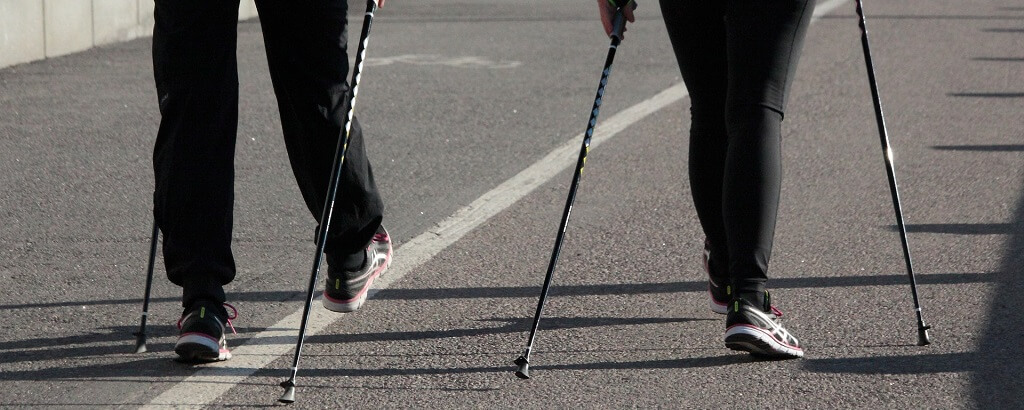We all recognise the importance of keeping fit. However, for some of us, exercise can be a challenge. Health conditions and fall risks can make some sports too dangerous to attempt. Fortunately, there are a wide range of sports out there, some of which are more accessible than others. To help you keep fit, we’re looking at the best low-impact sports that you can try.
For some people, low-impact sports could also be a route towards attempting more vigorous activities.
Benefits of Low-Impact Sports
Low-impact sports can be just as effective as more intensive sports for keeping you fit and healthy. One of the main benefits, however, is that you are less likely to get injured whilst doing them. By definition, a low-impact sport puts less strain on bone, muscles, and joints, whilst still enabling you to strengthen them.
By strengthening these parts of your body, you can also improve your flexibility. Better flexibility reduces the likelihood of experiencing stiffness and can also prevent you from pulling muscles in future.
A further advantage of low-impact sports is that you will often require less rest time. This is because these sports do not require much energy in the first place. Nor do they put too much strain on your body. This can make it easier to remain active every day rather than needing to take days off.
Finally, regular exercise can help to improve your mood, fighting poor mental health.
Types of Low-Impact Sports
There are plenty of low-impact sports to consider. These are our top picks.
Cycling
A gentle bike ride is one of the best ways to keep fit without putting too much strain on your body. Whilst certain cycling routes may prove more challenging than others, a gentle jaunt around the park is more than enough to boost the health of your heart, lungs, and leg muscles. Be sure to stay safe when cycling. If it makes you more comfortable, consider going for a bike ride with family and friends.
Bowling
Whether lawn bowls or ten-pin bowling, going bowling is a low-impact sport that can fight loneliness and keep you healthy. Though not involving as much motion as some other sports, bowling can help to improve your upper body strength as you roll the ball.
Nordic Walking
Regular walking is good for your health, but it can be taxing on your joints and muscles. Fortunately, Nordic walking is an option if you are interested in low-impact sports. Using a pair of walking poles, you work all the muscles in your body. What’s more, the walking poles also support your body weight, relieving pressure from your knees and ankles, making movement much easier.
Yoga
This is a popular form of exercise for many people, known for its peaceful nature. Yoga is characterised by gentle movements that exercise the joints without causing unnecessary strain. The movements performed in yoga are all designed to improve body strength, too, despite their low-impact nature. If you are worried about hurting your joints by exercising on the floor, a thick yoga mat can help to avoid discomfort.
Swimming
One of the best options when looking at low-impact sports is swimming. A dip in the pool can help you work every muscle in your body without putting too much strain on your joints. Water supports our weight, making movement easier and less taxing. And if swimming doesn’t appeal to you, many pools also host water aerobics classes.
Tai Chi
Offering similar benefits to yoga, tai chi involves slow movements. These help to boost your flexibility without overworking your joints. The slowness of the motions also encourages a meditative mindset, boosting mental health. Though it may not be as involved as other low-impact sports, tai chi is ideal for warming up and keeping your body healthy.
Safety When Keeping Fit
Though it’s important to keep fit, regardless of age, we should all be mindful of our limits. Exercising regularly can help to prevent the development of serious health problems. However, it can be a challenge if you are living with mobility problems.
If you are worried about your wellbeing whilst engaging in these low-impact sports – or in your daily life – consider a personal alarm from Carelink24. Personal alarms offer round-the-clock reassurance that help is always available at the press of a button. When you activate a Carelink24 alarm, an alert is sent to our 24/7 Care Team. We then arrange help by informing your emergency contacts or, if necessary, the emergency services.
To find out more about the Carelink24 alarm service, read our guide and view our price plans. If you have any further questions, please do not hesitate to get in touch with our helpful team. You can reach us by calling 0800 0076 247 or using our contact form.
Editor’s Note: This article was updated on 24th June 2024.


